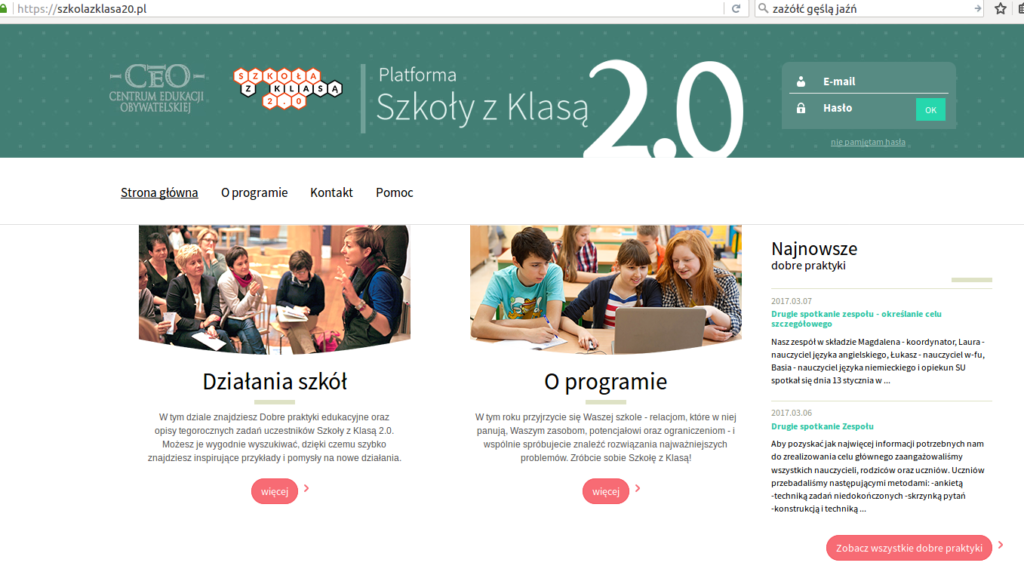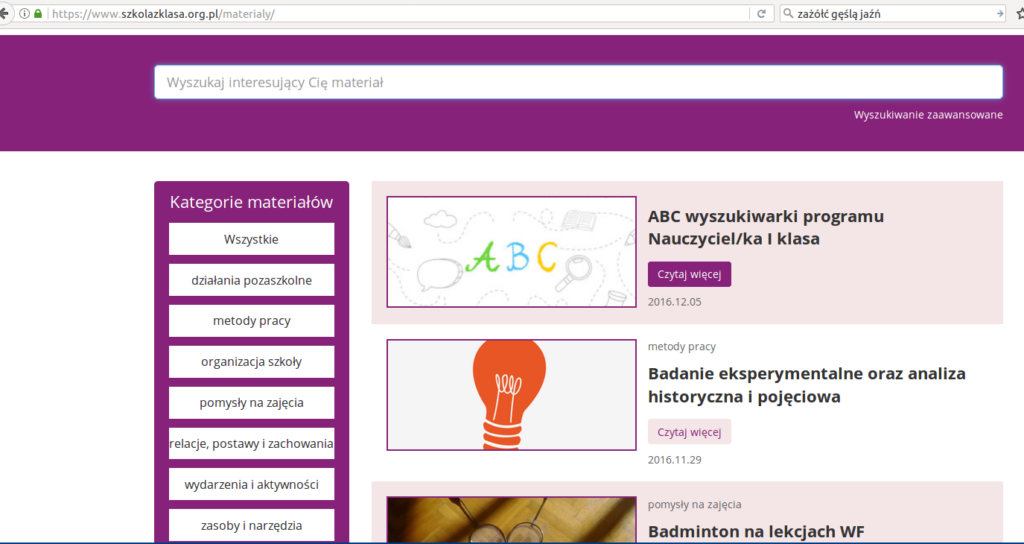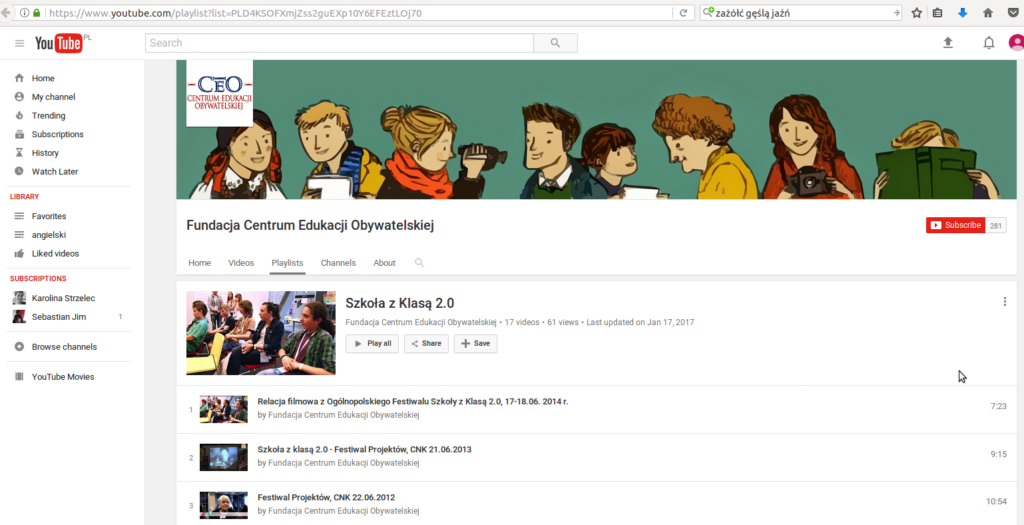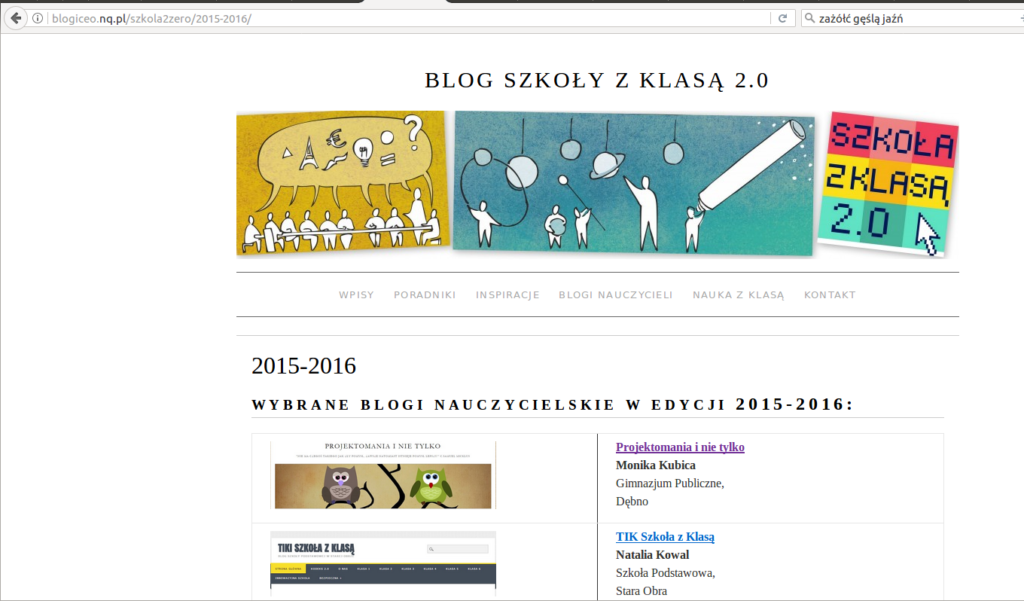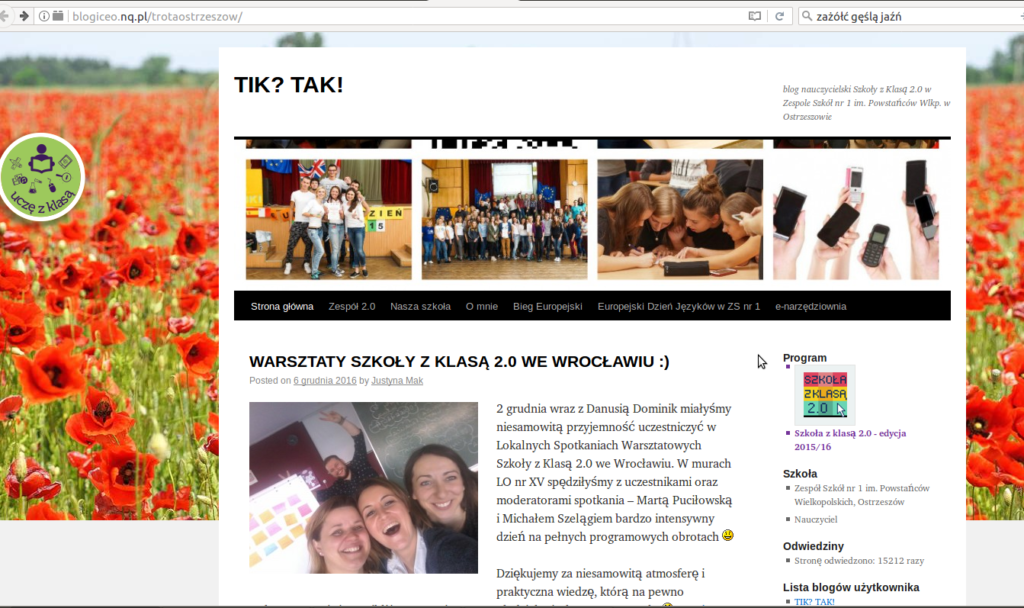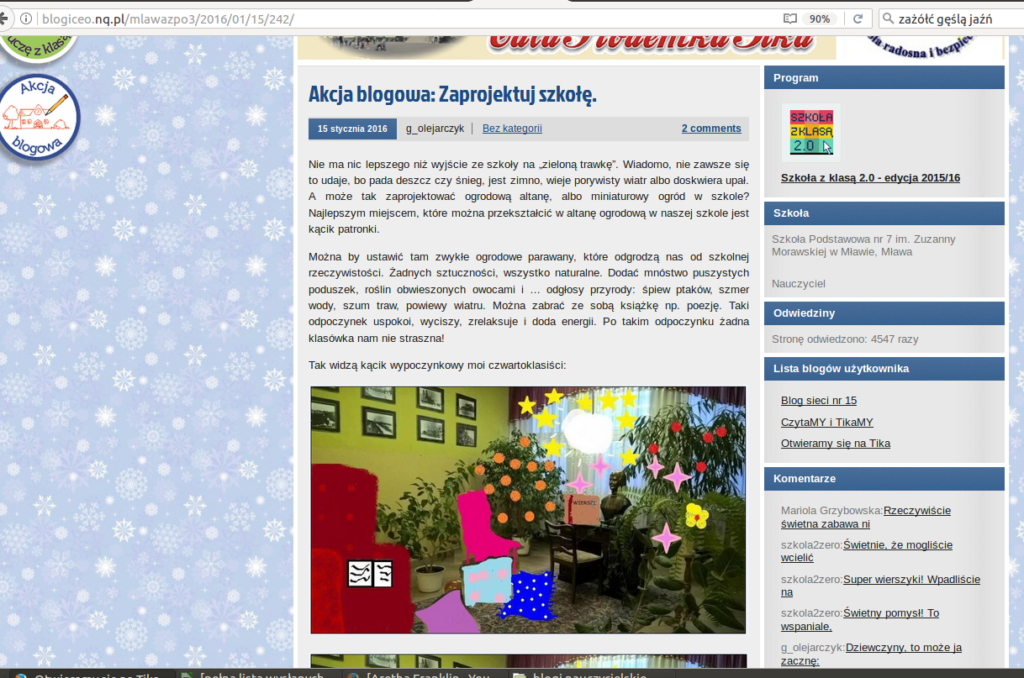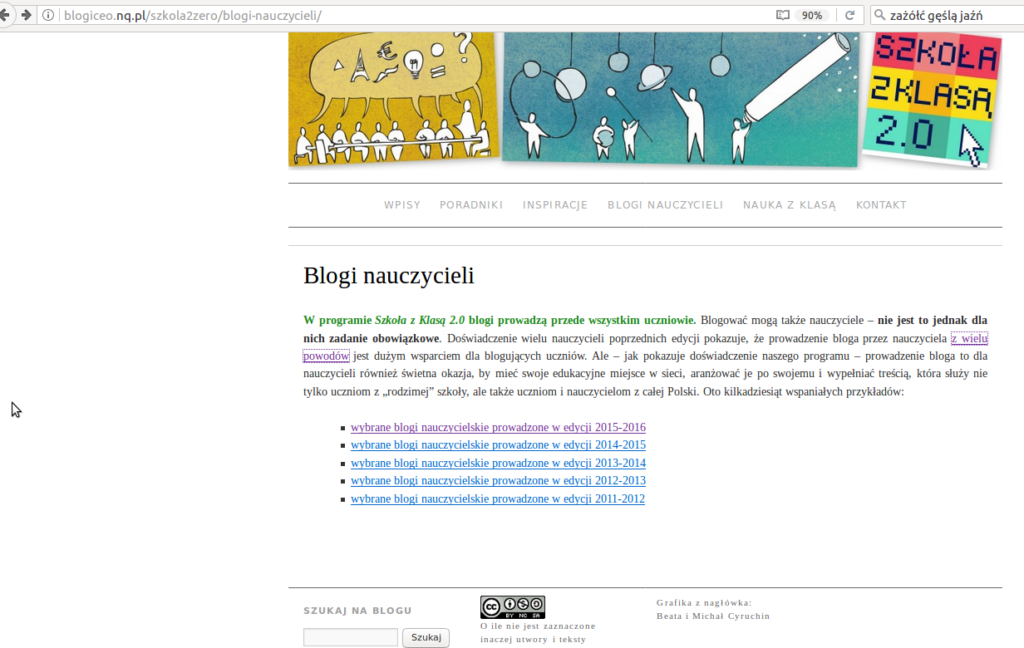Institution: Fundacja Szkoła z Klasą / A school with a class foundation
Authors: Piotr Pacewicz, Jacek Strzemieczny, Alicja Pacewicz
Title: Szkoła z Klasą 2.0 / School with Class 2.0
Topics: modern school, media literacy, using new technologies at school Characteristics of participants: School community (7-12, 13-15, 16-18 yrs old) Realization: 2002-
Documentation:
- About the project
- Main website: A school with class foundation
- Youtube channel
- Main website of A school with a class 2.0 program
- Descriptions of schools projects
- Database of good practices
- Archive participants blog
- Summary of the project
A “School with Class 2.0” is an educational program for elementary students (aged 7-12), lower-high (13-15) and high (16-18) schools. Our goal is to introduce a new way of thinking about education into Polish schools and promote principles that support up-to-date and e ective education. We encourage collaboration between schools and their local communities, strengthen communication within school communities and support wise use of new technologies in educational environment.
- Project innovation
- Duration of the project: the project has been developing for 15 years, when in Poland weren’t that much of support in educational eld. At the same time, the program has changed and adapted to the current needs. Thanks to the fact that participants are constantly presenting their activity on the web (e- learning platform) we have an insight into what is going on in schools and we can prepare the next editions so that we are able to respond as closely as possible.
- In 2016 we invited participants to work on the design thinking method, which the participants themselves consider as the most important for their institution. The foundation is to create a team that will also include students and other school community members. One of the areas where the team is supposed to take a look at is what new technologies are and how they are used in school.
- The most important ICT competencies of participants:
- ability to cooperate and share knowledge,
- creation and use of open educational resources, but also the exchange of
skills, - encourage teachers to learn from their students, digital natives, and students
to share ICT knowledge and skills with their peers, parents or grandparents, - critical evaluation of the information that is being delivered today mainly via
the internet: veri cation of sources (fake news), - skillful use of basic CC licenses and knowledge of basic copyright issues,
- use of new technologies in a deliberate, well-thought and justi ed way (ICT as a tool and not as an end in itself).
- How does the project developed media literacy of participants?
- We work mainly through the internet platform and we have a number of requirements that must meet the descriptions and attachments to them (presentations, photos, artwork and lms).
- In previous editions of the program we introduced a separate path where teachers learned themselves and then their students, about how to use the sources and how to describe them. On the blogs, students took part in activities in that they had to create appropriately described open resources and displayed them.
- Projects steps:
Tasks carried out by project participants:
1. First Team meeting: describing the main goal of the project.
The team will look at what kind of new technologies equipments the school has and what is still missing. The research included interviews and analysis. Based on this, the Team choose the main goal of the project that will be implementing in this school.
2. The Team will choose the one goal of the list of 10 goals from the list be- low. The goals de ne the areas in which they can make changes, and choose one that they will focus on:
- EQUAL CHANCES. Goal: the school compensates for the educational and life chances of children and supports the most in need.
- PASSION FOR SCIENCE: Goal: the school motivates students to learn, en- gage and develop the passions of students and teachers.
- KNOWLEDGE. Goal: the school shows how to use knowledge and skills in practice.
- INDEPENDENCE. Goal: the school teaches self-reliance, critical thinking, courage to ask questions and responsibility for learning.
- EVALUATION and PLAN. Goal: the school should evaluate to support stu- dents learning and development process, appreciates e ort and builds sense of worth.
- CITIZENSHIP. Goal: school teaches dialogue, co-operation and encour- ages to co-decision.
- SAFETY AND TRUST. Goal: the school build security, respect and trust.
- RELATIONSHIP. Goal: the school cares about good relationships andcommunication between all members of the school community.
- SOLIDARITY. Goal: the school teaches solidarity, mutual help and builds a culture of sharing.
- OPENNESS. Goal: the school is open to the local community and the world and teaches problem solving.
3. Second Team meeting: study of school needs and rede nition of goal.
- to verify (consults, interviews) the goals and plan the realization of the project. Team will match the needs of the school and determine what speci c challenge the school is setting for this school year (speci c goal).
- to plan activities that will allow the realization of the chosen goal. Goals should cover at least two of the three areas: architectural (PFAR – Physical and Architectural Space), Social (RELAX) and new technologies (ICT). But is per- mitted to choose di erent category. The Team can use the inspirations list that we have prepared – the “How can you help” document.
4. Third Team meeting: planning and division of tasks.
- Detailed planning: More precisely, the team will review each activity, share re- sponsibilities, and estimate the time it takes to complete the plans. The Team should also identify the key success factors – so it will be easier at the end of the year to evaluate the actions.
- Evaluation: the analysis of resources and needs, carried out at the rst meet- ing. It is important for the Team to also think about ongoing evaluation of ac- tivities, collecting opinions, observations and comments. Thanks to that, dur- ing the school year there will be some solutions to improve or better t the needs of the school.
5. Fourth Team meeting: evaluation of activities.
Last meeting is for:
- summarize and conclusions;
- summarize if the success indicators have been achieved;
- examine the conclusions, remarks and recommendations that Team had gath- ered at the beginning of the year (during discussions with school community representatives, during the current evaluation and the nal evaluation);
- determine the direction of further changes and see what has worked out and what is still worthwhile to work on;
- consolidate positive school changes and discuss how to continue the innova- tion process at school.
The coordinator of the Team is responsible for the execution of the program tasks. He/she is the one who organizes and monitors the implementation of activi- ties. Descriptions of tasks for the platform can be prepared jointly, in cooperation with the Team members, but it is be up to the coordinator to post them on the School Class 2.0 platform.

